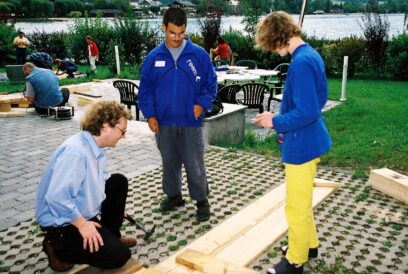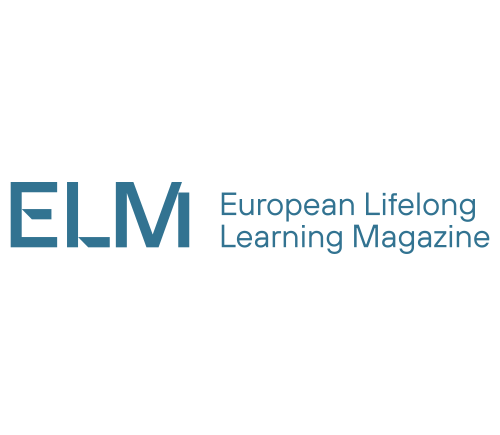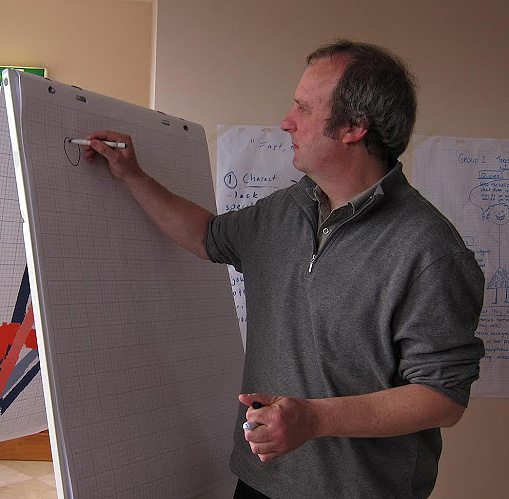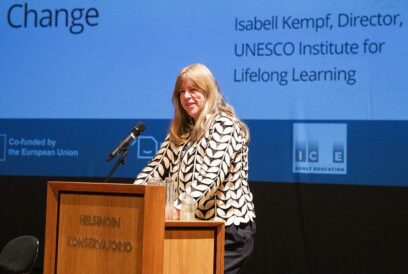

Five adult education experts describe the reactions prompted by PIAAC results in their countries.
Europe has been digesting the results of the OECD’s PIAAC study for a good two weeks now. First results of the adult skills study were published 8th October. Alarm bells seem to be ringing in many places. Results show that adults’ literacy, numeracy and digital problem-solving skills are below par in many countries such as Italy, Spain and France.
However, PIAAC results can make good ammunition for adult education lobbyists all over Europe as advocates continue to argue for the importance of lifelong learning.
Five adult education experts describe the reactions prompted by the publication of PIAAC results in their countries.
Norway
Hilde S. Grønhovd, communications consultant, Norwegian Association for Adult Learning (VOFO)
Norway reached sixth place in both literacy and numeracy, above OECD average.
How did education experts and the media first react to the results?
-The two biggest newspapers focused on two aspects: men outperformed women in numeracy, and Norway secured top positions in the rankings. Experts now want to find out why the gender difference in numeracy is so big, because it only seems to apply for the older generations. At school, girls outperform boys in math. Underperformance of older women may be caused by traditional gender attitudes prevailing at the workplace.
What was your own reaction?
-We in the adult education sector were relieved that PIAAC called for more lifelong learning and updating of skills!
What is the most significant result for Norway?
-It’s hard to name one single result. It is very important that PIAAC will most likely spawn plenty of new research into adult education.
What will change in your country’s education policy?
-It is early to say but politicians should start turning their focus from schools to lifelong learning.
United Kingdom (England & Northern Ireland)
Jim Soulsby, adult education expert, journalist

England and Northern Ireland reached 14th place (14/22) in literacy and 16th place in numeracy, both below OECD average.
How did education experts and the media first react to the results?
-The UK media has responded quickly and given the results high profile. All papers drew attention to the low skills levels of younger people. The incumbent government and the opposition blamed each other for neglecting the youth.
Only on the BBC website blog by Robert Peston was the class issue referred to that those young people with the lowest skills were those from families with poor educational and low social backgrounds.
The national adult education body NIACE called for a new vision where learning would be seen as beneficial to both society and individual.
What was your own reaction?
-I am concerned about the skills profile of young people but I was very heartened by the evidence linking engagement in learning/skill development with positive attitudes around health, well-being, societal involvement and volunteering. Also the point that high skills levels can be achieved despite social class divisions was well made linking the Netherlands and Japan in particular.
What is the most significant result for England and Northern Ireland?
-The low skills-level of young people. This result will create political rhetoric that will sadly only continue to perpetuate education policies for children and young people (and adults) which are not fit for purpose.
What will change in your country’s education policy?
-I doubt there will be much change. There will be no ‘serious’ examination of the divisive impact of the current schools examination system which demands a ‘creaming off’ of pupils for higher education via traditional curriculum subjects tested in ‘old fashioned written examinations’ at the end of the study periods. Such a system cannot be suitable or appropriate for those whose future is not in higher education nor likely to flourish in the labour/skills market.
There is equally unlikely to be any significant change in policy or resourcing of the kind of adult learning which would encourage the learner to understand and develop their own skill needs.
Italy
Vittoria Gallina, PIAAC researcher, Teresa La Marca, education journalist

Teresa La Marca
Italy was placed last in literacy and second to last in numeracy.
How did education experts and the media first react to the results?
-The media had a field day with headlines such “OECD: Italians can’t count or read” Commentators with more analytic leanings have been wondering at the disproportion of low skills and average-level education expenses. Employment and Social policy minister Enrico Giovannini is prepared to offer these results as explanation to Italy’s unemployment but many people believe there are other factors at play, too.
What was your own reaction?
-Italy seems to have stagnated economically and socially. Now we have to have a serious debate about the state of the education system, which has a lot of good in it too.
What is the most significant result for Italy?
-The most important thing is that the bad results may scare decision-makers to invest in adult education. So far the focus has been on young school drop-outs.
What will change in your country’s education policy?
-Can we really speak about an Italian lifelong learning and adult education system? The system is still so undeveloped as also PIAAC results can show. From 2007 the system was restructured with territorial centers for Adult learning but these centers are still not operating; they will start an experimental activity only starting from 2014!
Investment in such a system is urgent and the PIAAC results may hasten this process!
Germany
Michael Sommer, journalist, coordinator of adult education correspondents’ network InfoNet

Germany reached 16th place in literacy (below OECD average) and 12th place in numeracy (around OECD average).
How did education experts and the media first react to the results?
-The results had a very brief exposure in national media. Germans could anticipate a bad score based on earlier PISA results for school children, but often the bad PISA results have been explained away by referring to poor-skilled migrants.
What was your own reaction?
-I was not surprised by our relatively poor performance. I think it is harmful to put the blame on the individual for these results instead of giving more resources to adult education.
What is the most significant result for Germany?
-Germans can no longer pose as a well-educated nation in the humanistic “bildung”-tradition.
What will change in your country’s education policy?
-We do not have a national education policy, which is part of the problem. Every bundesland has its own education policies.
Slovakia
Klaudius Silhar, President of Association of Adult Education Institutions in the Slovak Republic

How did education experts and the media first react to the results?
-Only a few publications reported on the results. State authorities commented on the results in national media, and the Association of Adult Education Institutions compared Slovak results to other European countries.
What was your own reaction?
-On the EU-level I was surprised at the wide variation of results between EU countries. At the national level I was astounded to learn that a fifth of Slovaks have no experience in using a computer. I think this was the single most important finding for our country.
What will change in your country’s education policy?
-We now need a financing instrument to get adults into adult education. The basic infrastructure of adult education also needs funds. Ideally, PIAAC results will launch a national debate on the benefits of adult education in our country.
Pros and cons
The country experts listed good and bad news about their countries adult education, highlighted by the PIAAC results.
Norway
+General skills level is high in Norway
+We manage to include low skills-level learners in adult education
+Non-formal learning seems to have a big effect on skills level
-The skills level of immigrants is dramatically worse than that of the majority population
-Young people’s (16-24-year-olds) skills are low compared to the whole population
-Part of the population performed poorly in all skills categories.
England and Northern Ireland
+The skills levels of (some) older people is good and they are able to retain them
+PIAAC has established the link between skills development and health, well-being, societal involvement and volunteering
+PIAAC asserts the value of non-formal learning
-The skills levels in numeracy in England and Northern Ireland are low compared to other participant countries.
-The skills levels of young people are worsening
-A considerable number and percentage of adults in England and Northern Ireland have below level 1 skill in numeracy.
Italy
+Despite bad overall score, good results were recorded in North Italy
+The general skills level of women has increased, especially concerning literacy
-Participation level in adult education is low, 24 %, compared to the EU average 52 %
-Particularly older generations are absent form adult education
-Little investment is made in adult education
Germany
+The results underline the importance of the benefits of adult education
+PIAAC provides shock treatment for decision makers
-A national debate on improving the skills levels of immigrants is long overdue in light of the results
-Too little has been done to develop the adult education system
-The federal model of government prevents sweeping education reforms.
Slovakia
+In light of the results our adult education system is working: especially the law harmonizing the learning outcomes of lifelong learning and formal education
+Our NGOs are active in adult education
-Financing for non-formal adult education in neither efficient nor transparent
-An official financing instrument for adult education does not exist.
This article was produced in cooperation with InfoNet adult education network
Read more
Previously in LLinE
First results: PIAAC calls for equality in lifelong learning
EAEA statement on PIAAC results





